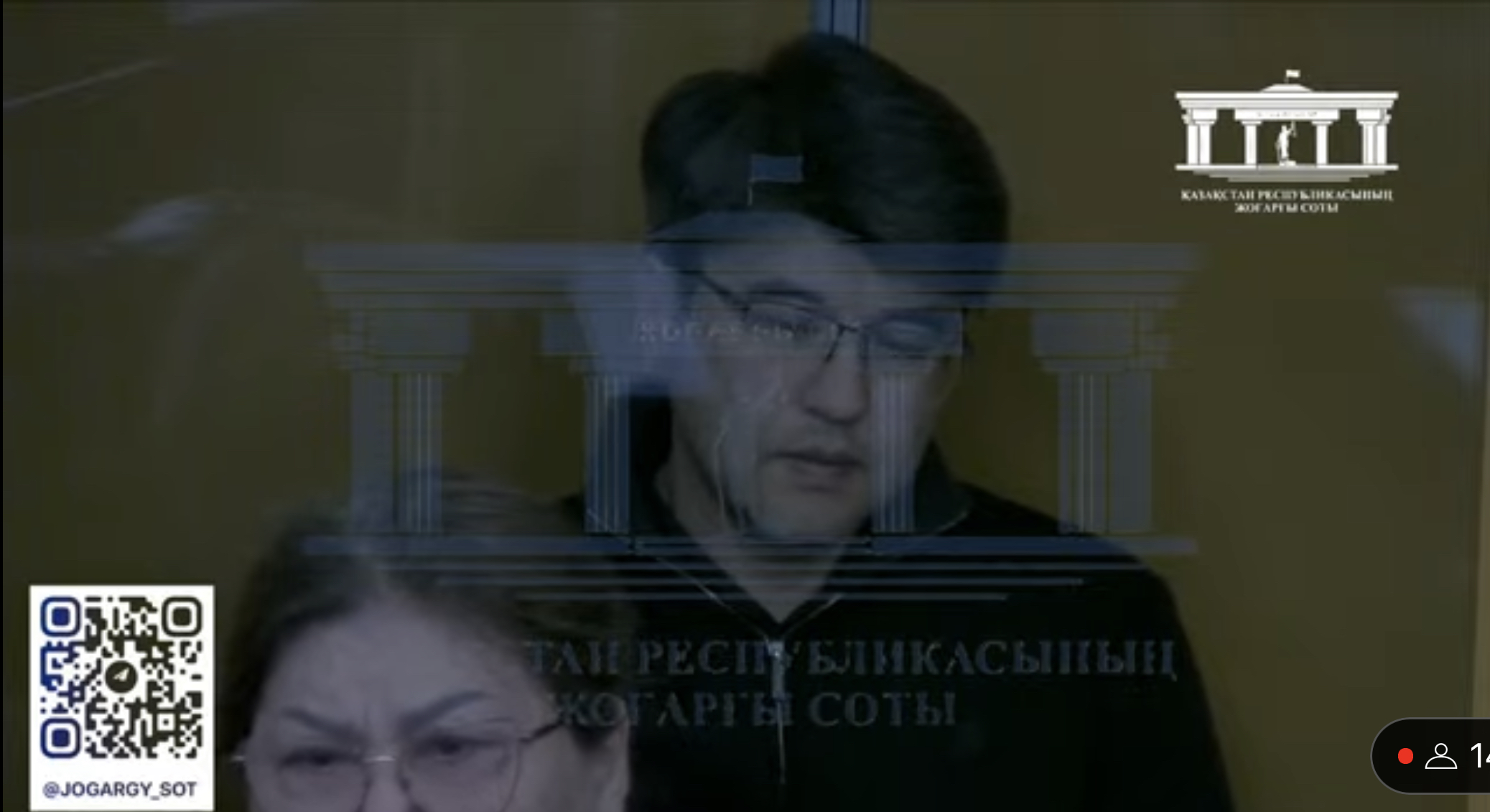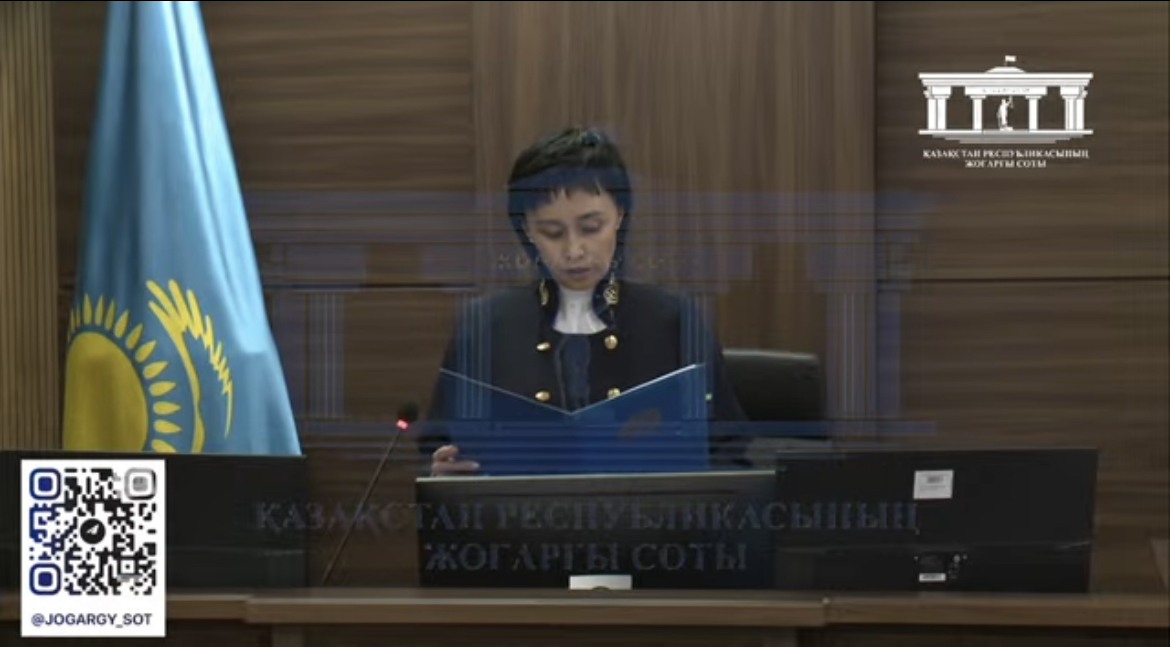ASTANA – A jury trial found Kuandyk Bishimbayev, the former Kazakh Minister of National Economy, guilty of torturing and murdering with extreme cruelty his common-law wife, Saltanat Nukenova. He was sentenced to 24 years in prison on May 13.

Former Minister of National Economy Kuandyk Bishimbayev was detained in Astana on Nov. 9 on suspicion of murdering his wife, Saltanat Nukenova. Photo credit: The Supreme Court of the Republic of Kazakhstan.
Bakhytzhan Baizhanov, another defendant in the Nukenova murder case, received a four-year prison sentence for failing to report the crime and for concealment.
Bishimbayev, 44, beat Nukenova to death on Nov. 9 last year in Astana’s Bau restaurant. He was arrested on the same day. The trial began at the end of March.
“By the verdict of the court, with the participation of jurors, the defendant Bishimbayev is found guilty of committing torture against the victim Nukenova and intentionally causing the death of Nukenova, committed with particular cruelty. Baizhanov is found guilty of concealing a particularly serious crime committed by Bishimbayev,” Aizhan Kulbayeva, the presiding judge at the Astana Criminal Court, read out the verdict.

Judge Aizhan Kulbaeva is delivering a verdict on the guilt of accused Kuandyk Bishimbayev on trial in Astana on May 13. Photo credit: The Supreme Court of the Republic of Kazakhstan.
The prosecutor requested a 24-year sentence for Bishimbayev and a four-year prison term for Baizhanov. During the court hearing, the defendants did not acknowledge guilt.
However, the victim’s testimony, witnesses, audio-video footage, expert views, and other criminal case resources all contributed to the defendants’ conviction.
According to Article 656 of the Code of Criminal Procedure, the judge and jury determined the appropriate sentence by open vote, with the majority of votes being considered.
Bishimbayev has been ordered to pay the state 2.3 million tenge ($5,224) for forensic examinations, while Baizhanov will have to pay 3,324 tenge ($7.53). A forced payment of 30 MCI (monthly calculation index) in the amount of 103,500 tenge ($234) will be collected from Bishimbayev for the compensation fund for victims, and Baizhanov will pay 20 MCI, which amounts to 69,000 tenge ($156).
Prosecutor Aizhan Aimaganova told reporters that any decision regarding Bishimbayev’s release on parole would require consent from the injured party.
The case has sparked nationwide discussions about the need to criminalize domestic violence in the country. President Kassym-Jomart Tokayev urged the law enforcement agencies to strengthen justice and order and to maintain special control over this high-profile case.
This April, Kazakhstan adopted a law that strengthens protections for women and children by criminalizing domestic violence, introducing tougher penalties for crimes against children, and addressing bullying, among other provisions.
